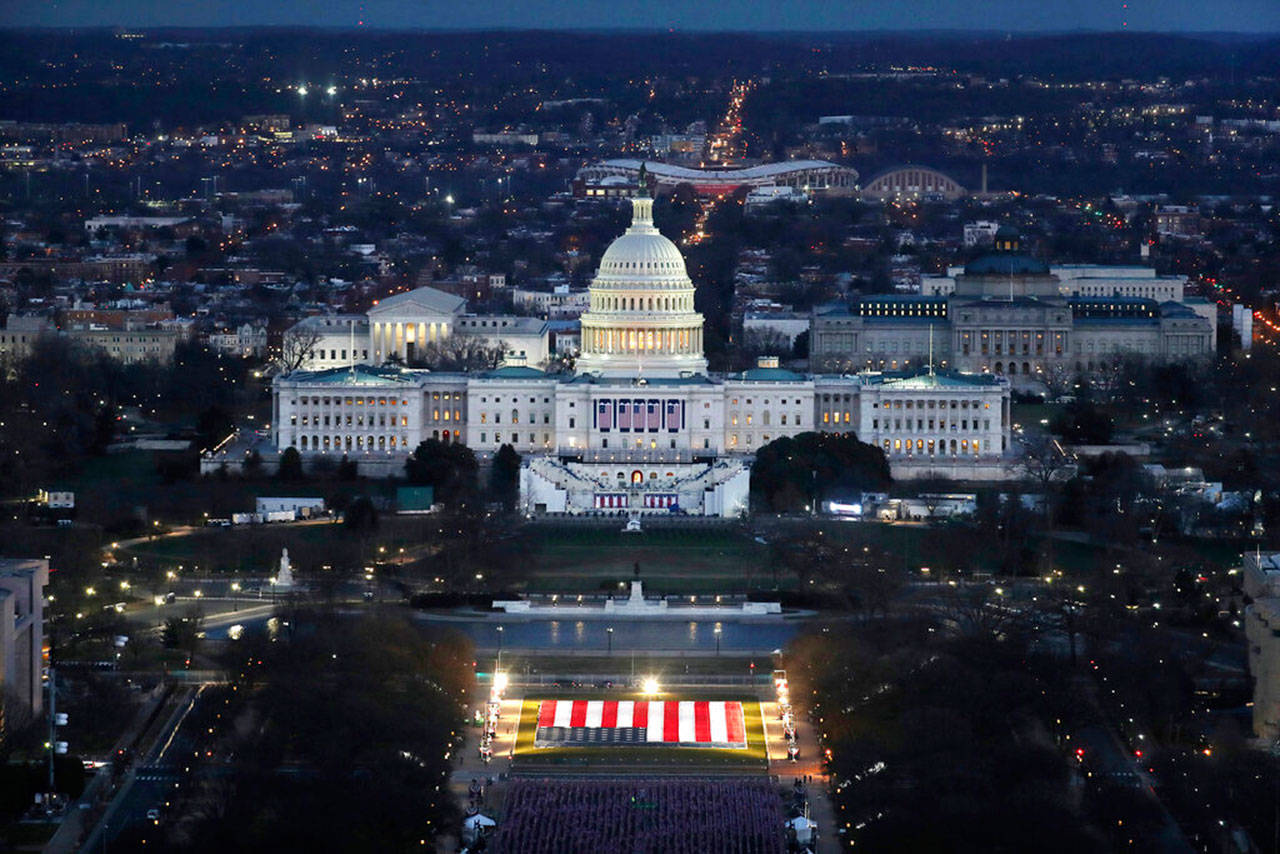By The Herald Editorial Board
No pressure, Joe.
As he certainly already realizes, even before taking this morning’s oath of office, Joe Biden is now expected to tackle a formidable inventory of crises, issues and initiatives that the nation — the 81 million who voted for him, the 74 million who voted for President Trump and another 176 million nonvoting Americans — now expects him to resolve.
Not the least of which is the coronavirus pandemic that has now claimed the lives of some 400,000 Americans and has left national and state economies staggering. At the close of 2020, as the nation’s vaccine distribution system left far too many doses sitting in the deep freeze, Biden promised he would see to it that 100 million doses of vaccine would be delivered in his first 100 days in office.
That’s a pledge that will be impossible to dismiss should it go significantly unfulfilled and one that Biden’s detractors won’t hesitate to use against him. More tragically, failure will represent a missed opportunity to limit the deaths and illness and allow gradual relief from the current restrictions we live under.
As we said, no pressure.
At the same time, Biden also has made promises related to resuming the fight against climate change, including rejoining the Paris climate accords and committing to net-zero carbon emissions by 2050; and work with Congress to pass a $1.9 trillion covid relief package, repeal the 2017 tax cuts that largely favored wealthy Americans, continue economic recovery efforts with attention to infrastructure and public health and adopt immigration reforms that include a path to citizenship for 11 million undocumented immigrants.
Oh, and Joe, can you do something to reunite the nation?
Every president, of course, faces opposition — from Congress and citizens — to the platform pledges on which they ran for office. The debate on policies that follows national elections is, of course, the foundational purpose of our democratic system.
Biden, more than any other president, however, also faces significant doubt from many that he legitimately won the election. More than opposition to his policies, a significant number refuse to recognize him as president. That refusal most alarmingly took the form of what can only be called an attempted coup on Jan. 6, seditious and violent acts that sought to interrupt if not prevent Congress’ certification of the results of 2020 election.
Those beliefs may have only solidified following the undemocratic siege. In the days after Jan. 6, 72 percent of likely Republican voters reported in a poll by Vox and Data for Progress that they continued to question the election results, with 49 percent opposed to Biden’s inauguration. A Washington Post-ABC News poll found similar results, with 65 percent of Republicans polled saying they believed there was solid evidence of voter fraud, even as 62 percent of Americans overall said there was no evidence of fraud.
Those numbers require the following to be repeated as often as is necessary: There has been no verifiable evidence produced — beyond the barest handful of incidents — to support claims of voter fraud significant enough to warrant questioning the results of the election in any of the 50 states. The elections — managed by county and other local-level election officials with several undergoing repeated recounts by machine and by hand — were certified by state-level officials of both parties, survived some 60 legal challenges before state and federal judges and U.S. Supreme Court justices — some of them appointed by President Trump — and were accepted by the Electoral College, leading up to the election’s final, if interrupted, tally and certification by Congress.
Craven insistence by Trump and some Republican members of Congress to continue to claim a stolen election — claims that have now earned the label of The Big Lie — are not proof and should not be used to justify continued opposition to the outcome. Remember that every member of the House of Representatives and about a third of the Senate were returned to office in the same election that some continue to insist was stolen from President Trump.
Joe Biden and Kamala Harris are the legitimate winners of the 2020 election. And this morning they will take their oaths of office.
Some supporters of President Trump will insist that refusal to recognize Biden as president is no different than what Trump faced from those who had voted for Hillary Clinton in 2016. This point will be challenged too, but the majority who had resisted the actions and policies of President Trump did accept, if grudgingly, the final outcome of the election.
Here’s why this distinction — recognizing election results while maintaining the right to challenge the platform of the winner — is important: Because our democracy, our success as a nation, our shared welfare, our freedoms and our Constitution require it.
We cannot move forward with the solutions necessary to our current dilemmas unless we can count on a loyal opposition that will challenge legislative and executive proposals that demand compromise and will help mold policy and programs that will serve all Americans. But that opposition, at its most basic requirement, has to accept the elections that have determined those who will represent us in those debates.
Joe Biden and his administration have formidable responsibilities they have pledged to take on; but none as challenging or as paramount as the duty we have ahead of ourselves to agree to work together.
Talk to us
> Give us your news tips.
> Send us a letter to the editor.
> More Herald contact information.

























